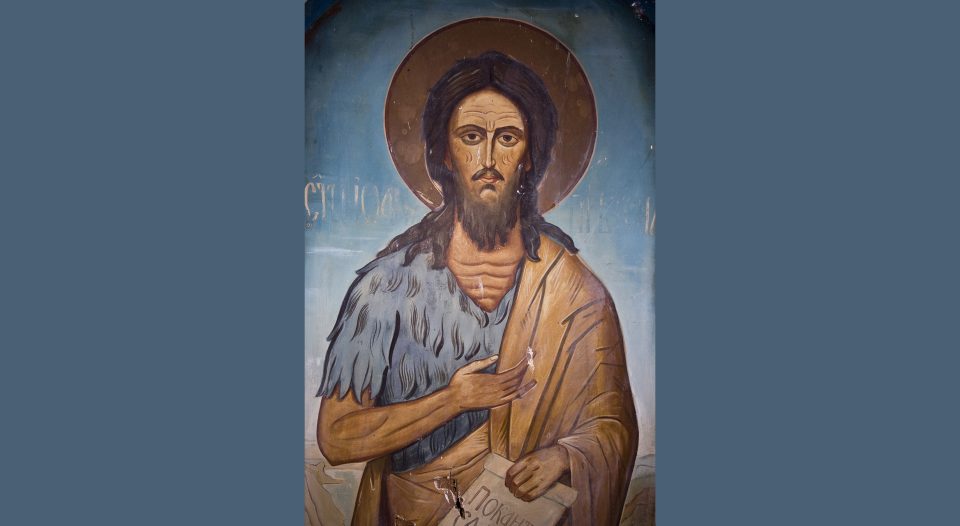Lectionary for Dec 11, 2022
Third Sunday of Advent
Isaiah 35:1-10; Psalm 146:5-10;
James 5:7-10; Matthew 11:2-11
How many times, when starting a new class, a new job or a new relationship, or moving to a new community do we say to ourselves: “This is not what I signed up for!”? I wonder if John the Baptizer felt that way. He patterned his life after Elijah the Tishbite, witnessing to everyone, especially rulers, that repentance and fidelity to the One, true God were necessary. God kept Elijah safe from a vengeful king and queen. At the end of his life, Elijah was taken up to heaven in a chariot of fire. John, however, was in Herod’s dungeon, awaiting his execution. This wasn’t how it was supposed to be!
As we discussed last week, John’s whole life and manner were continual witnesses to his insulation from the trappings of normal life and the power structures that give normal life its contours. He wore a light, comfortable garment of camel hair so he would be covered from the sun during the day and be plenty warm at night. John’s sturdy leather belt would last him for several years without replacement. And his sturdy, long-lasting clothes meant that he didn’t need to go to the market for replacements or pay attention to the current fashions. He was a man suited to his wilderness environment.
Likewise, his diet was sustainable and insulated from the food market and agricultural economy. He ate bugs and wild dates (“honey” here should probably be understood as uncultivated dates). Like Elijah before him, John was to speak to the rulers about their need to repent. Elijah’s earthly life ended in freedom, but John ended up in prison. The end of John’s life would come not from a chariot of fire but a sword or an axe. So John’s disciples went to ask Jesus—indeed, to challenge him—if he was the coming one who would set the prisoners free.
The people had not gone out to John because he adjusted himself to popular sensibilities or politics but precisely because he did not!
Jesus answers John obliquely by telling the disciples about the miracles he was performing—without listing “setting the prisoners free” among them. Instead of letting that be the end of the matter, he composed a blessing of sorts for John. He reminded the people that they had, in fact, gone out to the wilderness to see John because he wasn’t a reed blown about by the wind. John didn’t change his message in response to the direction of political or economic winds—indeed, that was why he was in prison. Had the crowds gone out to see someone dressed in luxurious clothing? John wore clothing that made perfect sense for the wilderness environment but would be perfectly out of place at a palace feast. The people had not gone out to John because he adjusted himself to popular sensibilities or politics but precisely because he did not!
John was a prophet—even more than a prophet. Of humans born the normal way, there was no one greater than John. I imagine, though the text doesn’t say this directly, that John’s disciples carried Jesus’ words back to their master to encourage him.
But Jesus wasn’t done speaking. Those who are least in the kingdom of heaven are greater than John the Baptizer. What does this mean? Interpretations vary, of course, and many of them make sense. I think this verse needs to be interpreted in light of the following eight verses. Jesus contrasts his way with those of John. John was a stern man, warning of coming wrath, permanently dwelling in the wilderness. Jesus was a hard partier, a friend of sinners, who attended dinner parties in cities at which John wouldn’t be caught dead. John wanted Jesus to be a political, warrior messiah who would free the prisoners of Rome and Herod and burn evildoers immediately. He wanted the kingdom of heaven to advance forcefully by forceful men. I believe Jesus was saying that the kingdom he brings doesn’t work that way. He does predict judgment on those who reject the ways of the peaceable kingdom, to be sure. But Jesus’ kingdom won’t be achieved by force.
John’s ministry was to help prepare the way of the Lord and to convict folks in regard to the need for repentance. But John wasn’t the coming one. There is only so much repentance we can do on our own. John is the very limit of human ability to repent and choose against participation in evil. Jesus came to free the world from sin and death. One doesn’t accomplish this kind of freedom by human strength or warfare. John is the greatest of humans. The kingdom of heaven is a gift to humans who can’t free themselves but only gratefully respond to God’s free grace.





